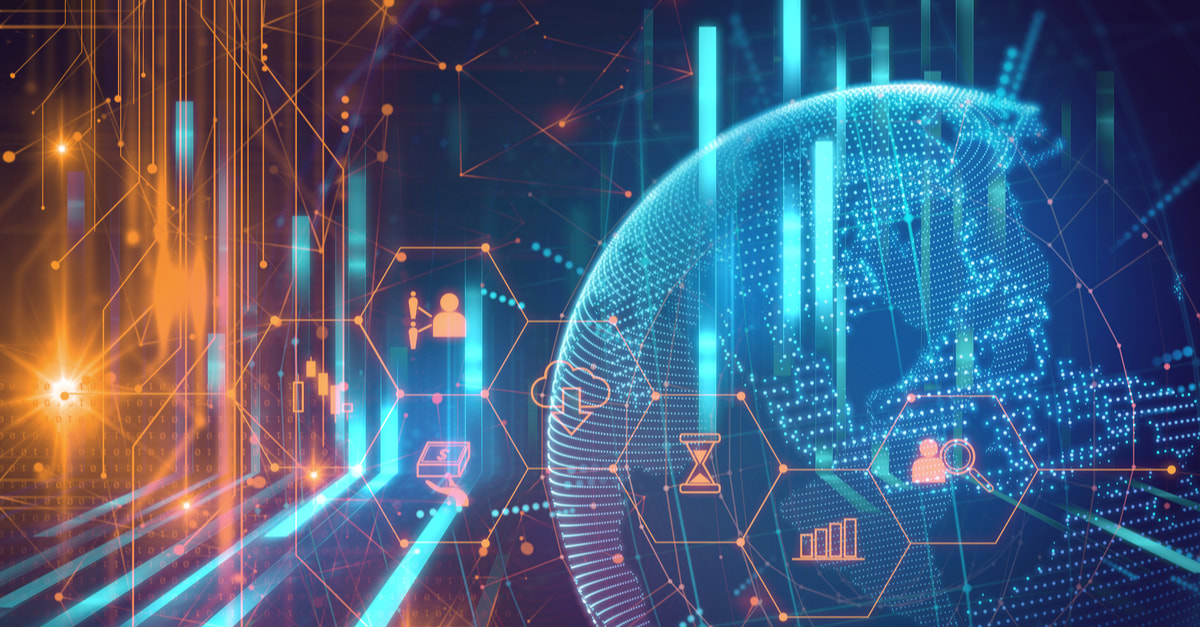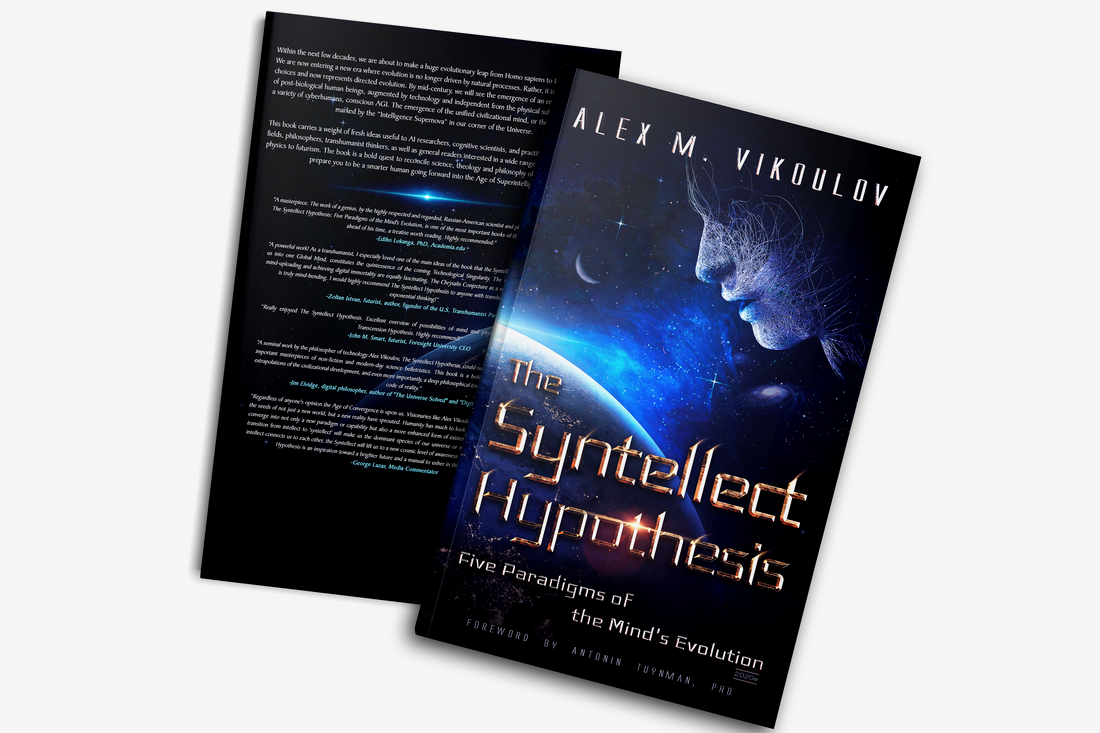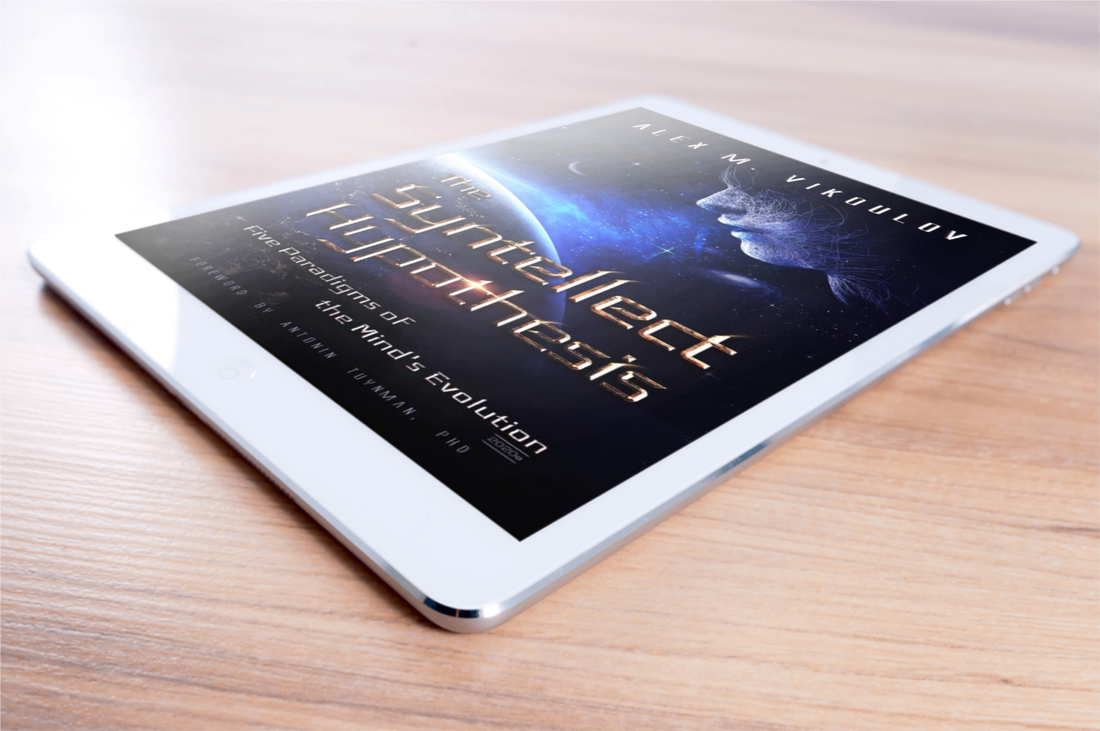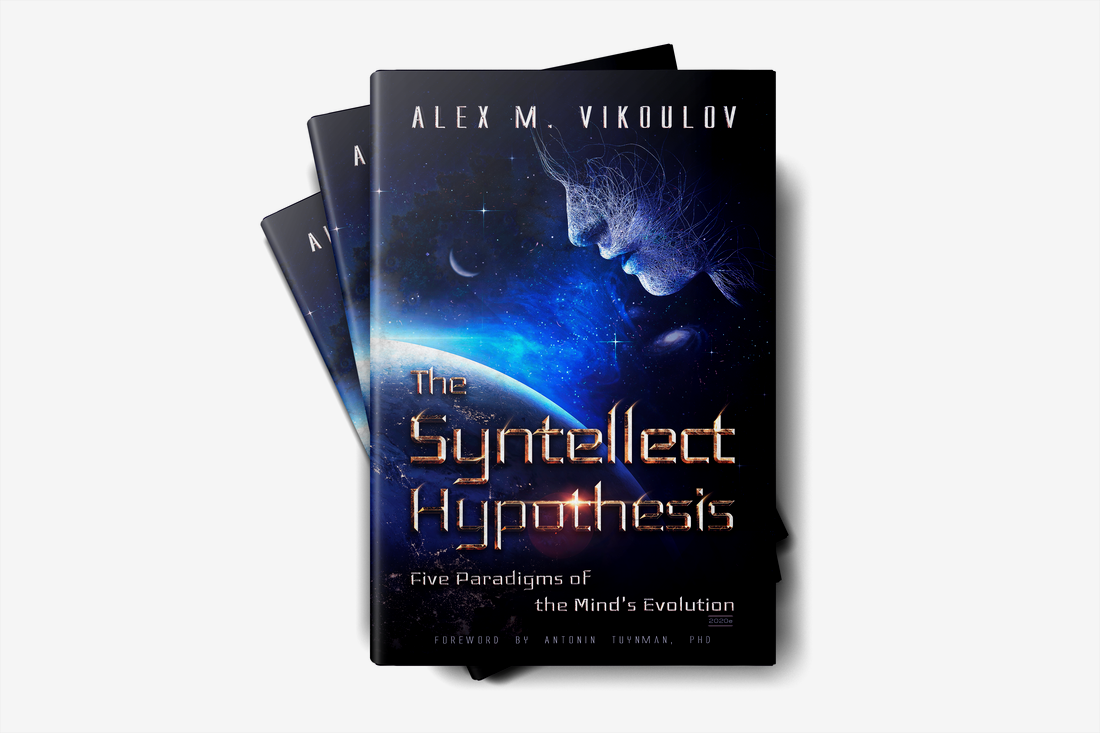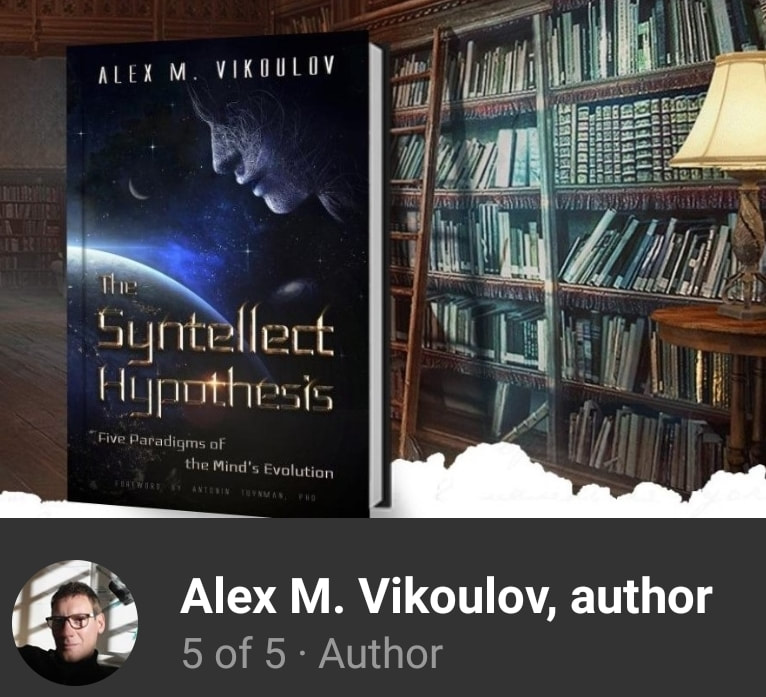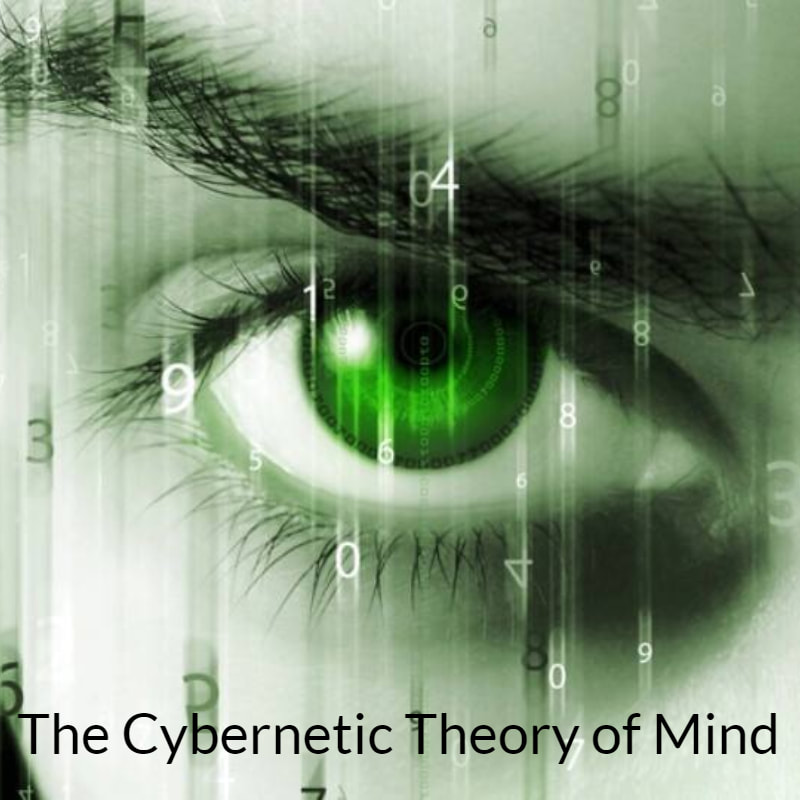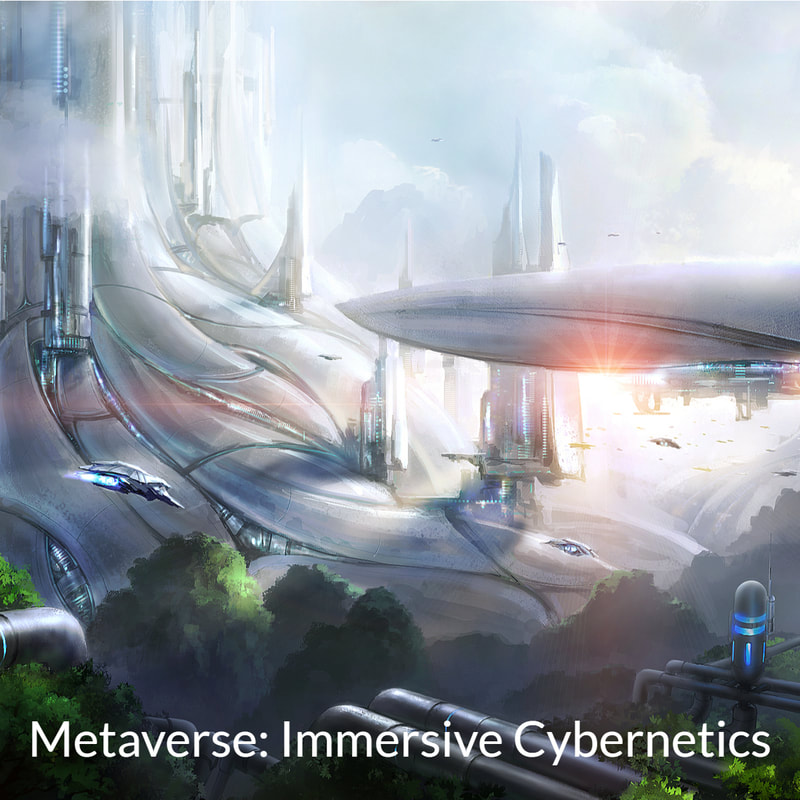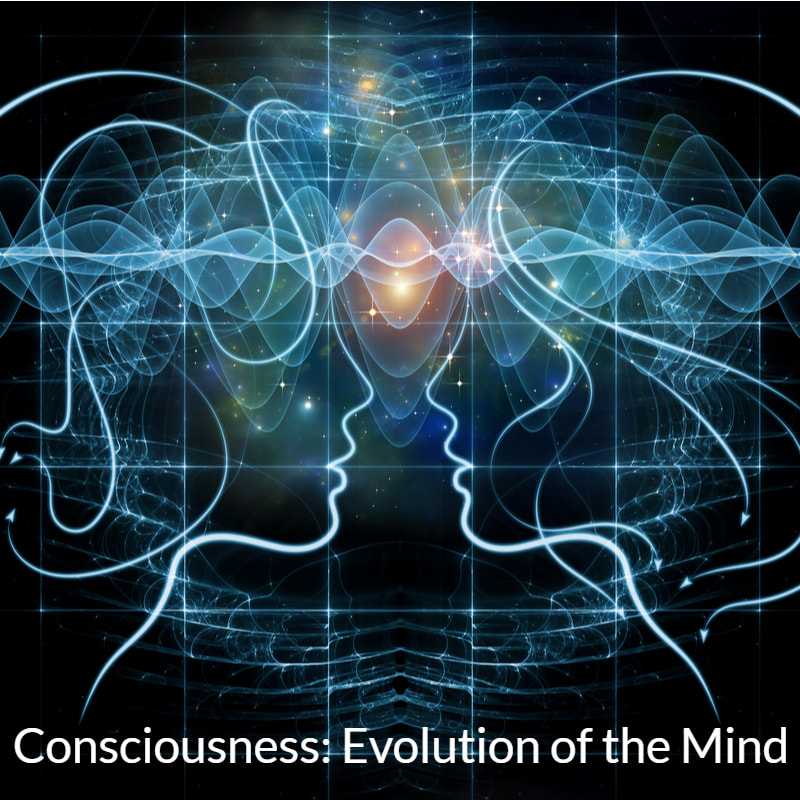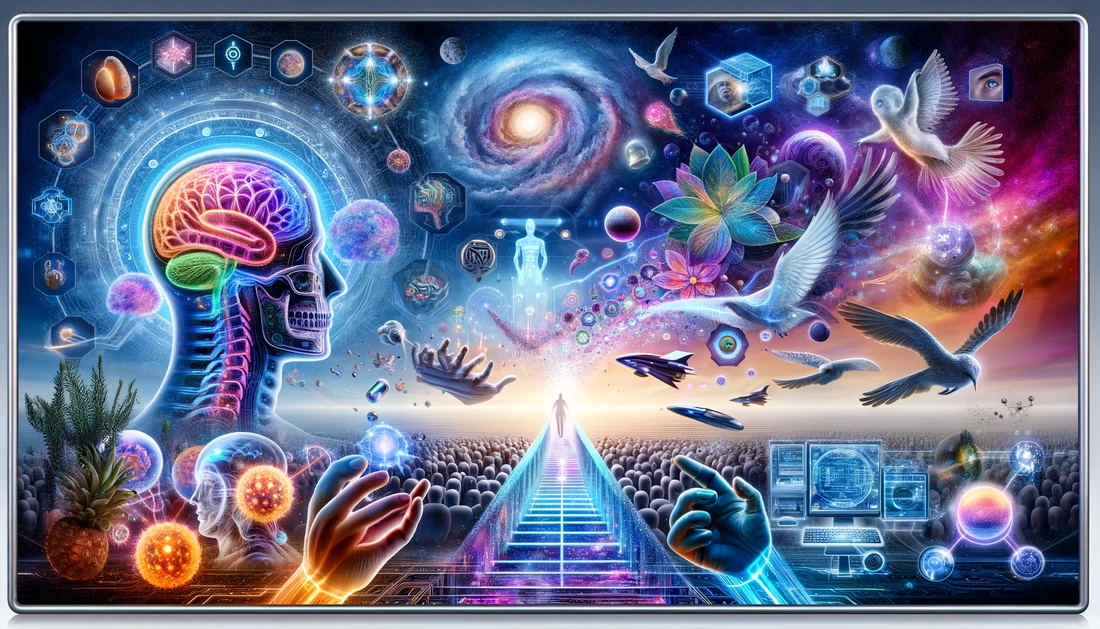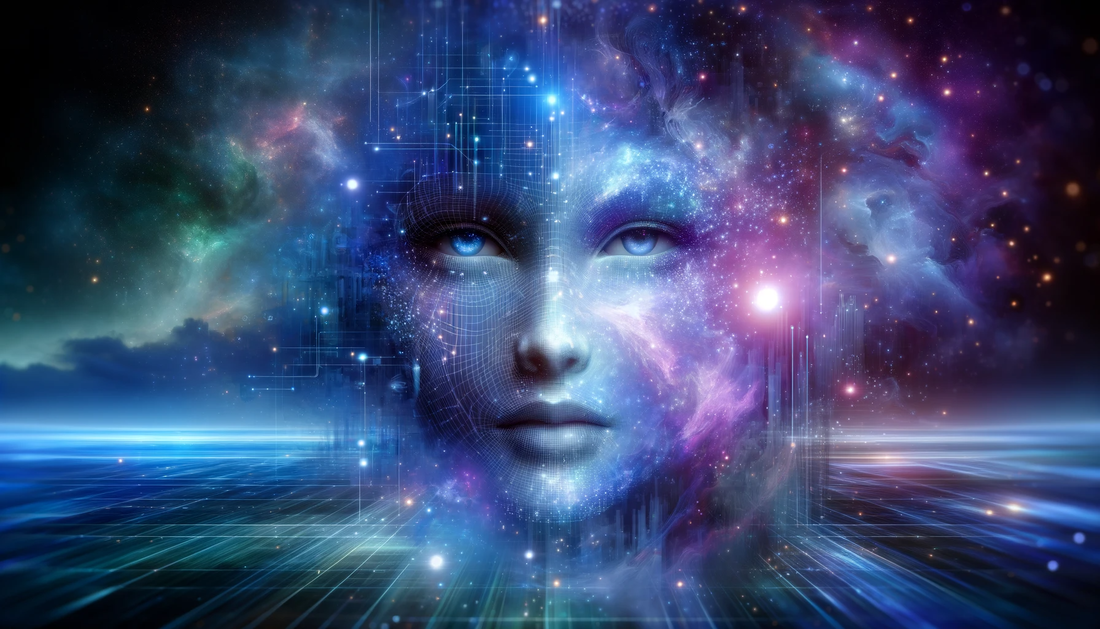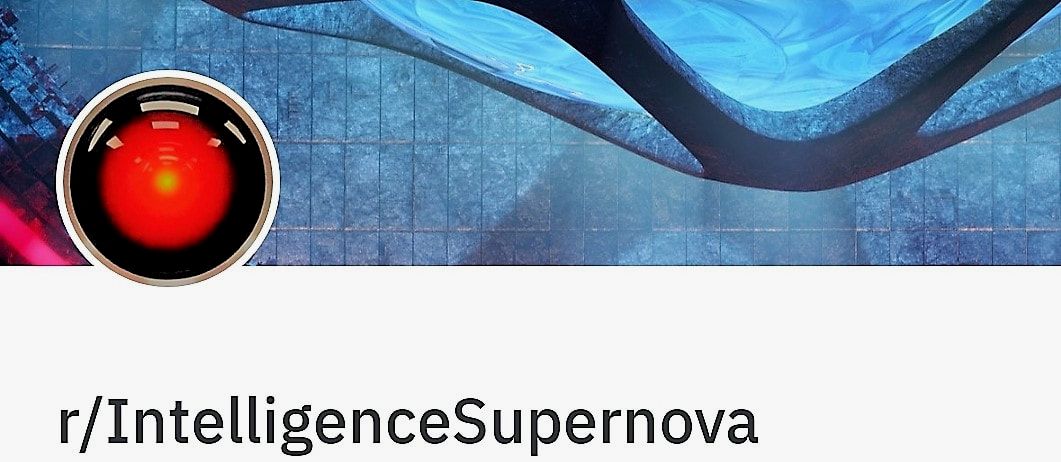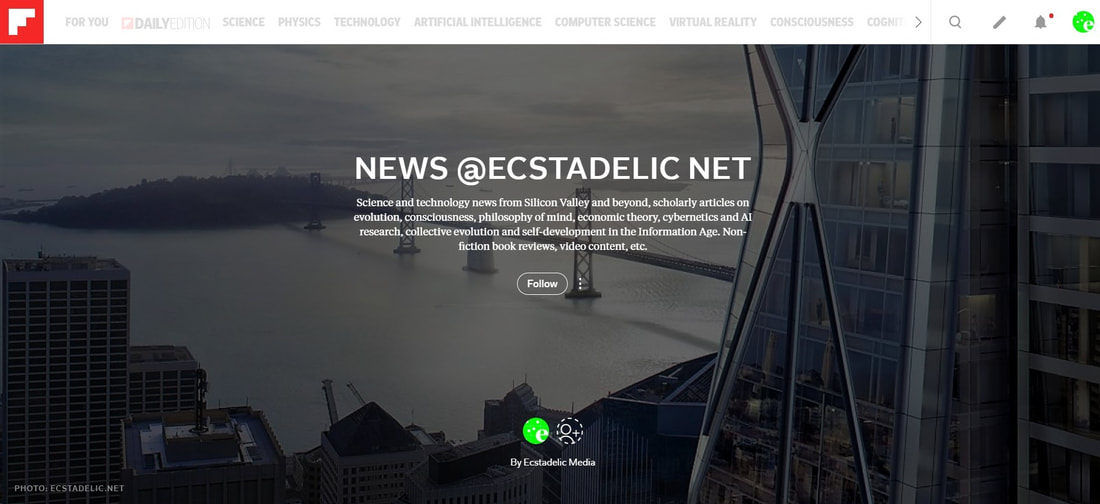|
by Alex Vikoulov "The social inefficiency of capitalism is going to clash at some point with the technological innovations capitalism engenders, and it is out of that contradiction that a more efficient way of organizing production and distribution and culture will emerge." -Yanis Varufakis The current economic system distributes wealth in a very focused manner that prevents a vast majority of humans from being adequately rewarded by the technologically advanced civilization. These factors undoubtedly condemn today’s system of suboptimal economics to the realm of classical models of history as a result of impending obsolescence. In brief, the current faltering economic model is suboptimal, hinders economic growth, and is not sustainable going forward.* *This article is adapted from "The Syntellect Hypothesis: Five Paradigms of the Mind's Evolution" by Alex M. Vikoulov, available now on amazon.com, bn.com, audible.com and directly from EcstadelicNET webstore.  The current economic operating system may work with “alternating success” for some time, but ultimately capitalism will mutate and will be gradually replaced with IT-based shared economy. Many labels were tentatively given to this post-scarcity, post-capitalist model. In his 2018 book, Superminds, Thomas W. Malone, MIT’s director of the Center for Collective Intelligence, describes a hypothetical model he calls ‘Cybersocialism’, other names like ‘Fully Automated Luxury Communism’ were mentioned in the press. We’ll use the broad term ‘Post-capitalism’ here to refer to any subsequent economic model. Make a note that I don’t advocate for any particular model, I’m only saying that we are quickly outgrowing the classic form of capitalism. I believe economic evolution is akin to any other natural process of unfolding patterns, so it would apply to economic development as well. Economic evolution doesn’t end with capitalism. By mid-century, geo-post-capitalism will likely combine market economy, socialist elements and even AI-engineered central planning amid decentralized backdrop of its global components. Evolutionary utilitarianism – ensuring the greater good for the greatest number – seems like an obvious eventuality.* *This article is adapted from "The Syntellect Hypothesis: Five Paradigms of the Mind's Evolution" by Alex M. Vikoulov, available now on amazon.com, bn.com, audbile.com and directly from EcstadelicNET webstore. Overall, we have been on the right track, nonetheless. Many aspects of life on Earth are getting dramatically better. Extreme poverty has fallen by half since 1990, and life expectancy is increasing by leaps and bounds in developing countries. Studies consistently show that most people in developed countries have no clue that the world has taken a happier turn in recent decades because media, and humans in general, have a strong negativity bias. Bad economic news gets more coverage than good news. Negative experiences affect people more, and for longer, than positive ones, and many people think things are getting worse, in part because that’s actually an evolutionary adaptation: It’s been crucial for our survival to be sensitive to bad news, so people are genetically conditioned to pay about ten times more attention to negativity than positivity. As long as the costs of communications and computation continue to drop due to exponential advances in technology, communication networks become global and ubiquitous, and as the networks proliferate, they gradually replace matter with mind, i.e., networked intelligence. Access is becoming more important than ownership. It would be more economically optimal in some situations to rent than to own, in other situations to share and generate passive income. If the premise of the current sharing economy is that you can turn your car into a cab or your house into a hotel, the premise of the next phase of the IT-based shared economy is that you can turn anything into a productive asset. All you have to do is set your price and other criteria, and AI will take care of the rest. The blockchain “smart contracts” could make a lot of things sharable. Electronic “gig economy” can distribute creative and enjoyable mini-tasks, and “digital twins” can earn you additional income. Our AI future is almost unimaginable: AI will destroy and create jobs, invent new industries, accelerate innovation to a new level and fundamentally change the way business is done across the board. Some epicenters of innovation, such as Silicon Valley, revered as America’s technology capital, where I’m fortunate to live, has an outsized influence on the world’s economy, stock markets and culture. This small stretch of land from San Jose to San Francisco is home to three of the world’s five most valuable companies. Tech giants such as Apple, Facebook, Google, Intel and Oracle all claim Silicon Valley as their birthplace and home. San Francisco Bay Area has the 19th-largest economy in the world, ranking above Switzerland and Saudi Arabia. And California is now the 5th largest economy, surpassing the U.K. in 2018. Across the Pacific Ocean, collectivistic China rivals the U.S. in terms of Big Data generation. Moreover, China seems to put more emphasis on developing robotics – empathic machines – to integrate robots, and consequently, AGIs into the fabric of society, while the focus of the U.S. has been disembodied AI, thus far. China might be closer to the realization of the Global Brain, epitomized in the Internet of Things, Internet of NanoThings, Quantum Internet and Virtual Metaverse than most countries. But at the same time, none of it will really matter – by mid-century nation-states will fade away, anyway, just like the feudal city walls are now no more than a historic peculiarity. Nation-states evolved to regulate human beings – the main intellectual and physical resource in the past few centuries – while blockchains, and similar systems that could be called “virtual states” are evolving to regulate information technology. In the future, nation-states will have ever more limited ability to reach into cyberspace to regulate information technology. Not only the world around us is rapidly shifting to a truly digital economy, but one that will become economically borderless. Just like medieval city walls later were either demolished or reduced to historic curiosity, over time, nation-states will, too, gradually play a quickly diminishing role in our lives, giving way to one global stronghold without borders.* *This article is adapted from "The Syntellect Hypothesis: Five Paradigms of the Mind's Evolution" by Alex M. Vikoulov, available now on amazon.com, bn.com, audbile.com and directly from EcstadelicNET webstore. In today’s rapidly changing global economy, emerging technologies like AI, blockchain, and VR edge us ever closer to the brave new world where national borders will be ultimately transcended. Over the long term, technology trends will inexorably trump any geopolitics in significance. Entrepreneurs, researchers and socialites are much better adept and motivated to cooperate on a global scale than politicians. In the meantime, AI will fundamentally change how governments work, and the changes will likely come much sooner than many think. We’ll also see the emergence of nano-nations that create self-sustaining human habitats on the ocean – seasteading. In fighting a losing battle for relevance with virtual states and nano-nations, nation-states will be forced to implement UBI to keep them relevant for few more years. The United Nations’ Global Sustainable Development Report 2019 suggests we seriously need to consider making drastic changes to our economic systems. “[T]he economic models which inform political decision-making in rich countries almost completely disregard the energetic and material dimensions of the economy,” the researchers wrote in the report. “Economies have used up the capacity of planetary ecosystems to handle the waste generated by energy and material use.” In summary, maybe it’s time to accept we can’t somehow maintain endless economic growth on a finite planet. But what if with the new wave of technologies, such as nanotechnology which would enable us to reprogram matter at a molecular level, we can overcome scarcity once and for all? Design would then become the most important part from start to end product which can be freely shared or have a premium in the marketplace. At any rate, this will dismantle the current social, economic, and political system, because it will become irrelevant; every institution, every value system, every aspect of our lives have been governed by scarcity: the problem of distributing a finite amount of “stuff.” There will be no need for any of the today’s social institutions. In other words, when nanotech and ultra-realistic VR are commonplace, the system built on scarcity will crumble and that would herald the forthcoming "economic singularity." P.S. That was an abridged excerpt from The Syntellect Hypothesis: Five Paradigms of the Mind's Evolution in which a long chapter is specifically dedicated to economics. Why am I talking about economics in the philosophy book? In our interdependent world, everything is woven into the tapestry of life and our today’s livelihood heavily depends on economy. In the long run, capitalism won’t survive, nation-states won’t survive – we will but as a new technological species – through a metamorphosis on the planetary scale – the human-machine “caterpillar” transforming into a higher-dimensional “butterfly.” Tags: economic singularity, capitalism, economic system, economic model, suboptimal economics, Yanis Varufakis, Superminds, Thomas W. Malone, Collective Intelligence, Cybersocialism, Fully Automated Luxury Communism, Post-capitalism, Economic evolution, geo-post-capitalism, market economy, evolutionary utilitarianism, IT-based shared economy, smart contracts, gig economy, digital twins, Silicon Valley, Big Data, empathic machines, robots, AGIs, disembodied AI, Global Brain, Internet of Things, Internet of NanoThings, Quantum Internet, Virtual Metaverse, Nation-states, blockchains, virtual states, information technology, cyberspace, nano-nations, UBI, United Nations, Global Sustainable Development Report, nanotechnology, VR *Image Credit: Shutterstock About the Author: Alex Vikoulov is a Russian-American futurist, evolutionary cyberneticist, philosopher of mind, CEO/Editor-in-Chief of Ecstadelic Media Group, painter, essayist, media commentator, author of "The Syntellect Hypothesis: Five Paradigms of the Mind's Evolution," "The Origins of Us: Evolutionary Emergence and The Omega Point Cosmology," "The Physics of Time: D-Theory of Time & Temporal Mechanics," "The Intelligence Supernova: Essays on Cybernetic Transhumanism, The Simulation Singularity & The Syntellect Emergence," "Theology of Digital Physics: Phenomenal Consciousness, The Cosmic Self & The Pantheistic Interpretation of Our Holographic Reality," "NOOGENESIS: Computational Biology," "TECHNOCULTURE: The Rise of Man." Self-described neo-transcendentalist, cosmist, transhumanist singularitarian. Lives in Burlingame, California (San Francisco Bay Area). More Bio... Author Website: www.alexvikoulov.com e-mail: [email protected]
11 Comments
C James Townsend
2/10/2020 03:36:04 pm
Interesting but still limping using old left of center ideas with techno-optimist insights. should dread my book The Singularity and Socialism. Capitalism wont be outgrown, an evolutionary process will allow it to give birth to the next process of production which is what we are seeing now. https://www.amazon.com/dp/1503034739/ref=cm_sw_em_r_mt_dp_U_4IEqEbAPRQ6RZ
Reply
2/11/2020 10:59:19 am
Great book that was mentioned in The Syntellect Hypothesis! However, it all depends on the time horizon one wants to take. In the long term, even Homo sapiens won't be around on this Earth, let alone capitalism the species invented. In the short term, we'll see the transition towards "virtualization" of economics, where central banks will be ultimately rendered obsolete, among other dramatic changes to the global economy.
Reply
Craig
3/17/2020 04:31:58 pm
Great, I am glad you did read my work. I do have to read yours as I find it interesting the parts you have published in your blog. 5/6/2020 12:10:40 pm
I've had a similar interest like you, worked on it for a long time and can tell you once we live in abundance we will get a normal life. Capitalism will be outgrown with socialism which will have a more developed market of work than capitalism can afford. It will be more productive than capitalism so that it will sent capitalism down in history. If you are interested you may find how good capitalism, socialism, and communism are supposed to look like in short articles here https://www.sarovic.org/home/good-capitalism
Reply
3/6/2020 04:06:31 pm
It seems to me that the best name for what the author predicts is: hyper-capitalism.
Reply
Oleg Alexandrov
4/11/2020 12:54:56 pm
"The current economic system distributes wealth in a very focused manner that prevents a vast majority of humans from being adequately rewarded by the technologically advanced civilization."
Reply
Oleg Alexandrov
4/11/2020 12:58:55 pm
Actually later in the article some of the points I mention are addressed. Glad this does not preach old style socialism I assumed from the introduction.
Reply
Alex Vikoulov
4/11/2020 01:20:34 pm
Oleg, thank you for your feedback. No one disputes the merits of free market economics. However, in the 21st century we're now starting to witness that capitalism stopped working and this is why we see these deepening crises every time any kind of black swan event strikes an outdated but somewhat resilient system. We'll soon see an emergence of a new economic order - the one which will be based on automation and UBI, algorithmic AI-powered management and collectivistic "socialist" elements aimed to satisfy the global civilizational agenda rather than sporadic corporate stakeholders. Will it be a new socialism with an old face? I hardly doubt that, it will be altogether a new economic model - neither capitalism nor socialism.
Oleg Alexandrov
4/11/2020 01:36:56 pm
Hoping you are right. I have been reading what the Singularity evangelists say for about 20 years, and also read Iain Banks's Culture series about benevolent AI and a post-scarcity economic and social order, and also the Homo Deus book. One can't dispute that instant communication, ever smarter software, and other technologies are slowly democratizing many aspects of means of production, etc. But I have also learned to temper my optimism about how long it will take for all these massive changes you advocate to come about. Yes, hoping for a better world ahead.
Reply
5/6/2020 12:16:37 pm
You are obviously technologist which will certainly help creating a much better world. But this is just a part of the future. The most important will be the recognition and acceptance of equal human rights. Once they are accepted the bright future of humankind will start unconditionally. Here they are in one page article https://www.sarovic.com/2008_03_08e.htm
Reply
Transcendent
6/23/2020 06:26:40 pm
“By mid-century, geo-post-capitalism will likely combine....and even AI-engineered central planning amid decentralized backdrop of its global components.”
Reply
Leave a Reply. |
Categories
All
Recent Publications The Cybernetic Theory of Mind by Alex M. Vikoulov (2022): eBook Series The Syntellect Hypothesis: Five Paradigms of the Mind's Evolution by Alex M. Vikoulov (2020): eBook Paperback Hardcover Audiobook The Omega Singularity: Universal Mind & The Fractal Multiverse by Alex M. Vikoulov (2022): eBook THEOGENESIS: Transdimensional Propagation & Universal Expansion by Alex M. Vikoulov (2021): eBook The Cybernetic Singularity: The Syntellect Emergence by Alex M. Vikoulov (2021): eBook TECHNOCULTURE: The Rise of Man by Alex M. Vikoulov (2020) eBook NOOGENESIS: Computational Biology by Alex M. Vikoulov (2020): eBook The Ouroboros Code: Reality's Digital Alchemy Self-Simulation Bridging Science and Spirituality by Antonin Tuynman (2019) eBook Paperback The Science and Philosophy of Information by Alex M. Vikoulov (2019): eBook Series Theology of Digital Physics: Phenomenal Consciousness, The Cosmic Self & The Pantheistic Interpretation of Our Holographic Reality by Alex M. Vikoulov (2019) eBook The Intelligence Supernova: Essays on Cybernetic Transhumanism, The Simulation Singularity & The Syntellect Emergence by Alex M. Vikoulov (2019) eBook The Physics of Time: D-Theory of Time & Temporal Mechanics by Alex M. Vikoulov (2019): eBook The Origins of Us: Evolutionary Emergence and The Omega Point Cosmology by Alex M. Vikoulov (2019): eBook More Than An Algorithm: Exploring the gap between natural evolution and digitally computed artificial intelligence by Antonin Tuynman (2019): eBook Our Facebook Pages
A quote on the go"When I woke up one morning I got poetically epiphanized: To us, our dreams at night feel “oh so real” when inside them but they are what they are - dreams against the backdrop of daily reality. Our daily reality is like nightly dreams against the backdrop of the larger reality. This is something we all know deep down to be true... The question then becomes how to "lucidify" this dream of reality?"— Alex M. Vikoulov Public Forums Our Custom GPTs
Alex Vikoulov AGI (Premium*)
Be Part of Our Network! *Subscribe to Premium Access Make a Donation Syndicate Content Write a Paid Review Submit Your Article Submit Your Press Release Submit Your e-News Contact Us
|

